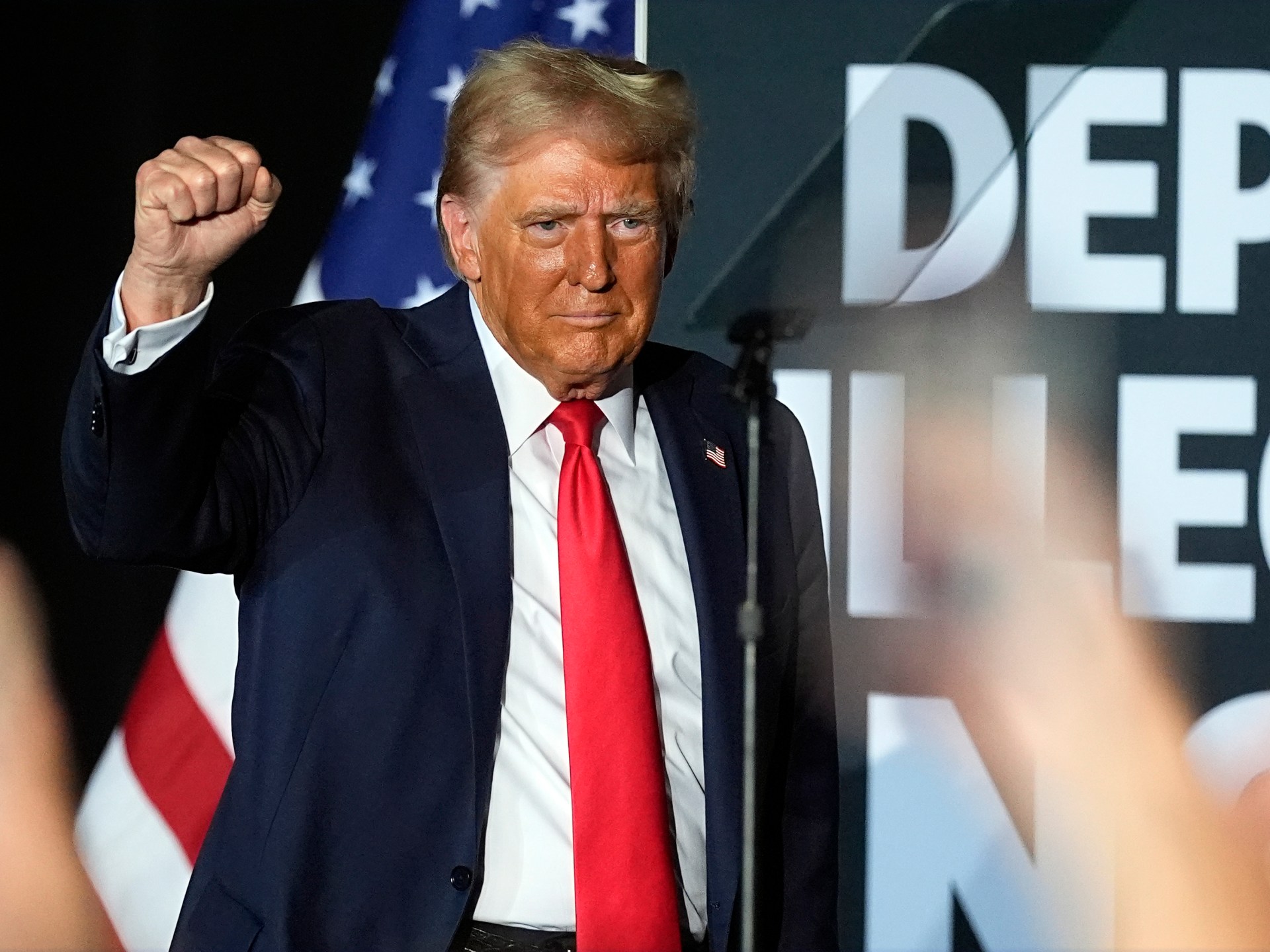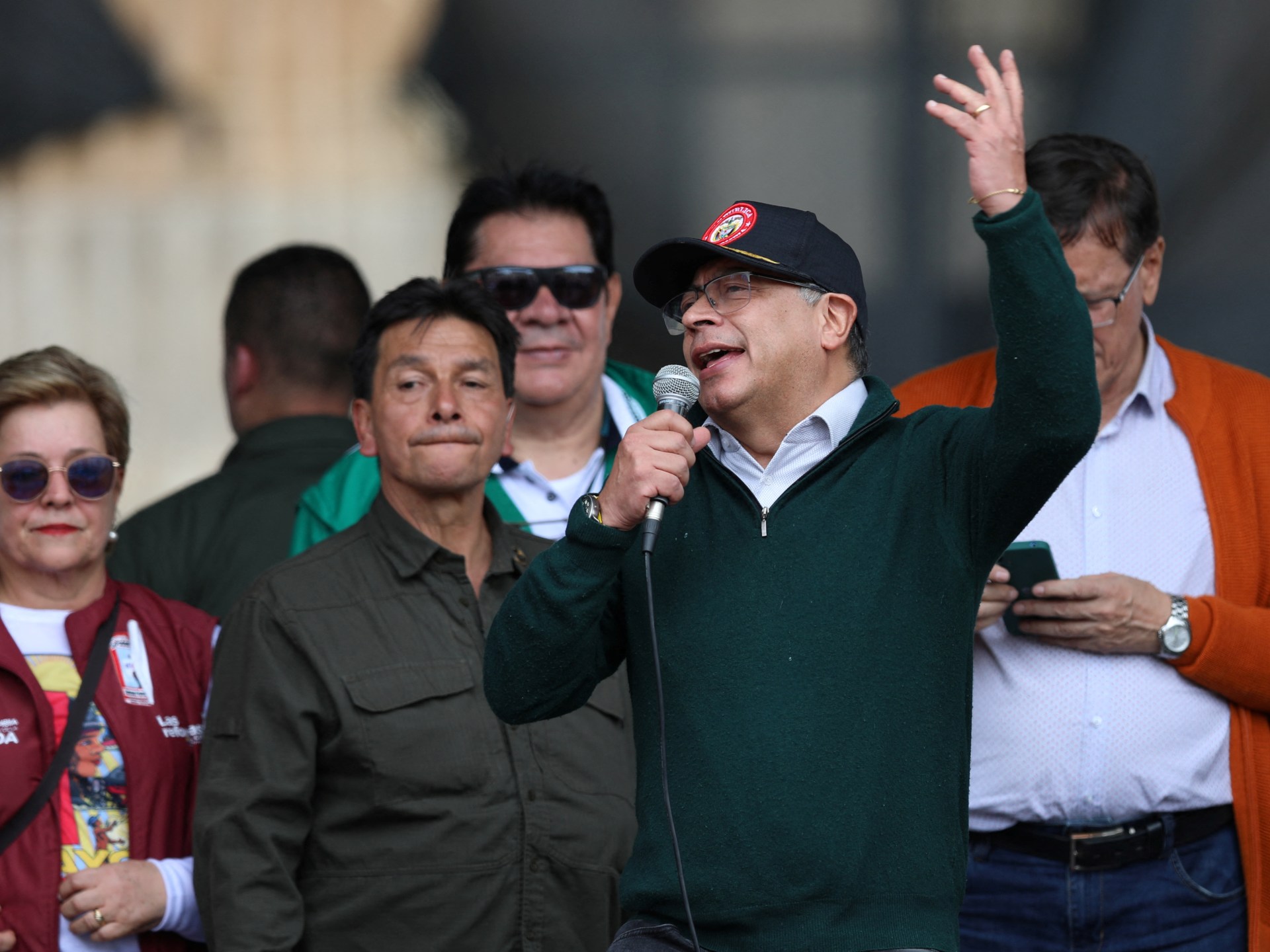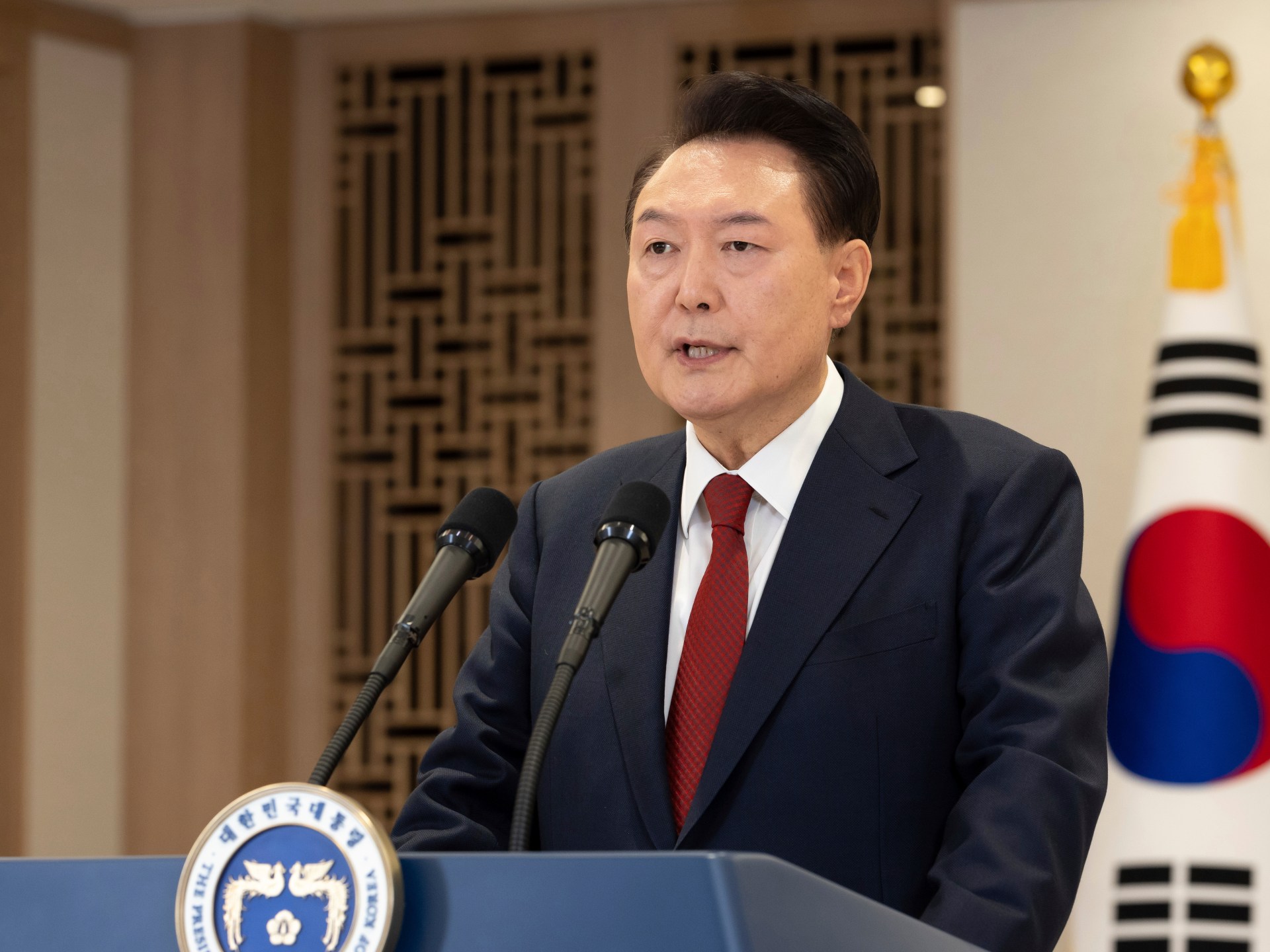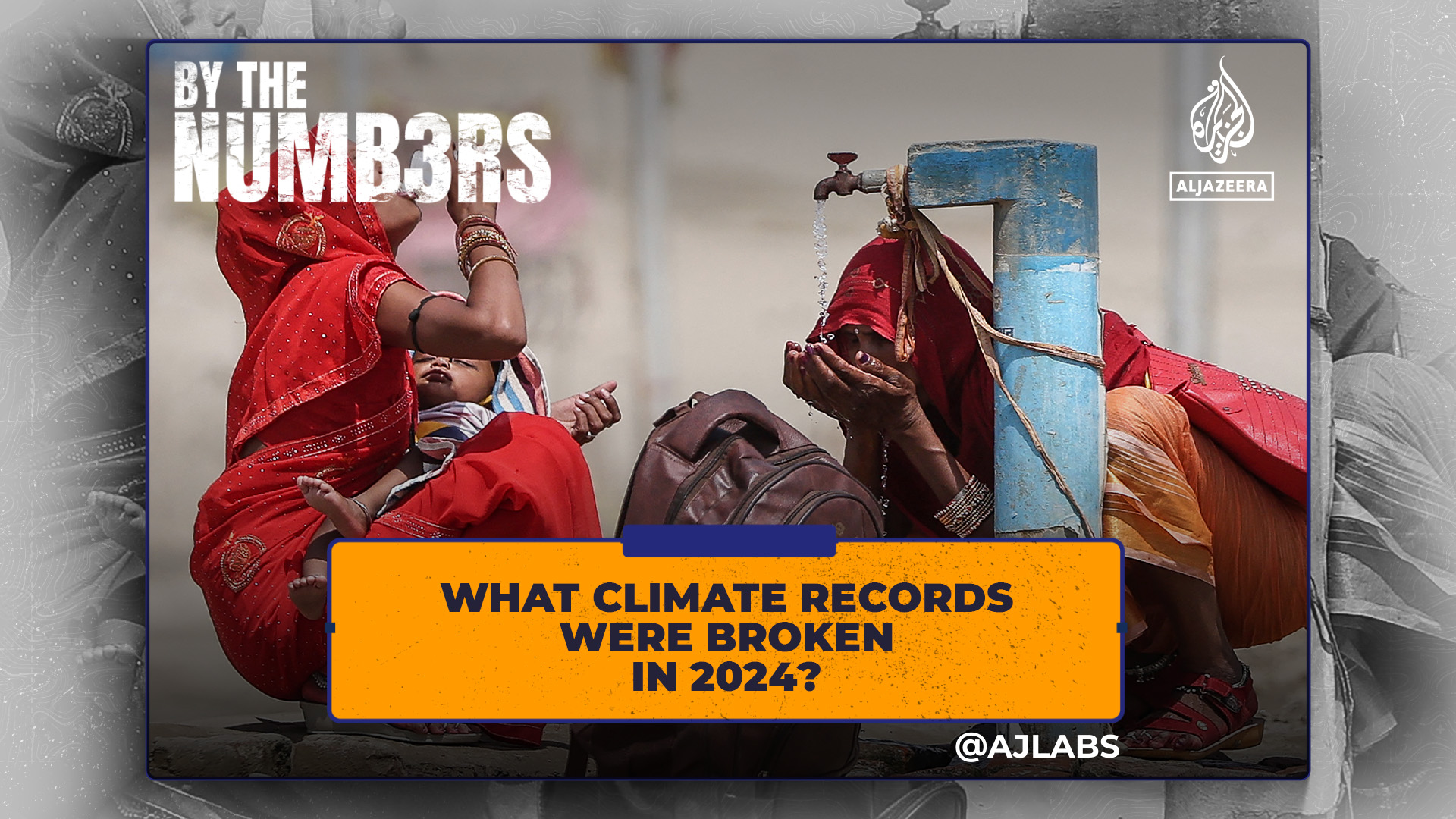US Republican candidate Donald Trump has filed a legal complaint requesting an immediate investigation into “blatant foreign interference” on the part of British officials in the upcoming presidential election on November 5.
In a letter sent to the US Federal Election Commission (FEC), Trump’s campaign lawyer Gary Lawkowski accused the UK’s ruling Labour Party of sending senior advisers and officials to US battleground states in support of his Democratic Party rival Kamala Harris.
“To protect our democracy from illegal foreign influence, it is imperative that the Federal Election Commission … investigate this matter immediately,” the complaint read.
While the UK’s Labour Prime Minister Keir Starmer dismissed the claims, the incident could strain relations between the US and its closest ally in the event of Trump winning the tight election, said analysts.
What are the allegations?
The complaint cited a now-deleted LinkedIn post by Sofia Patel, the head of operations for the Labour Party, asking if anyone would be willing to travel to the US to “help our friends across the pond elect their first female president”.
“[Let’s] show those Yanks how to win elections!”, she wrote.
Patel also said almost 100 current and former party officials were travelling to swing states including North Carolina, Nevada, Pennsylvania and Virginia, and added that there were 10 spots still available, promising that “we will sort your housing.”
The letter to the FEC also quoted a report by the Washington Post stating that “[s]trategists linked to Britain’s Labour Party have been offering advice to Kamala Harris about how to earn back disaffected voters and run a winning campaign from the center left.”
The Telegraph reported that “Morgan McSweeney, the Prime Minister’s chief of staff, and Matthew Doyle, director of communications, attended the convention in Chicago and met with Ms Harris’ campaign team,” the complaint added.
How has the Labour Party responded?
The United Kingdom’s prime minister said party officials were volunteering for Harris “in their spare time”, rather than in their capacity working for Labour.
“The Labour party … volunteers, have gone over pretty much every election. They’re doing it in their spare time, they’re doing it as volunteers, they’re staying, I think, with other volunteers over there,” Starmer said.
“That’s what they’ve done in previous elections, that’s what they’re doing in this election and that’s really straightforward.”
Is Labour doing something illegal?
Whether or not the Labour Party is funding these activities is key to establishing whether there has been any illegality.
According to federal law, foreign nationals are prohibited from “directly or indirectly” making “a contribution or donation of money or other thing of value, or to make an express or implied promise to make a contribution or donation, in connection with a Federal, State, or local election” or an independent expenditure in support of a US presidential candidate.
Candidates are also under obligation not to “solicit, accept, or receive a contribution or donation”.
An exemption allows foreign nationals to volunteer in US elections provided they are not compensated, do not make expenditures and do not direct or control activities of US campaigns.
The complaint, however, argued that “there is sufficient evidence to support a reason to believe finding that the British Labour Party made, and the Harris campaign accepted, illegal foreign national contributions.”
It cited Patel’s LinkedIn posts saying that “10 spots remain available” to travel to US swing states and that “we will sort your housing,” arguing that this showed that the Labour Party was organising and financing this initiative, and in effect compensating the volunteers by covering their accommodation in the US.
Christopher Phelps, lecturer in the American and Canadian Studies Department at the University of Nottingham, UK, told Al Jazeera that Patel holds a title that “makes it seem like this is an official party move” and that party resources are being used to coordinate the effort.
“I think it was benign in intentions and not very serious on the ethical level, but it does look to me like it was a violation of US law,” he said. “Most countries wouldn’t want foreign political parties organising involvement in their political processes.”
Yet, Phelps noted that the Labour Party’s intervention was low-level compared with Russian interference, widely believed to be in support of Trump’s campaign. “The preponderance of American election interference this year as in recent cycles is Russia, which runs troll farms and bots,” he said.
The Labour move may end up backfiring, unwittingly benefitting the Republican camp. “It’s very convenient now for Trump to be able to say: look at this foreign interference in behalf of the Harris campaign in order to offset the suspicions that are aroused by the Russian attempt to support his campaign,” Phelps said.
Is there a precedent for this?
The FEC is expected to conduct a review of the case. If it finds that a violation has occurred, it could issue a written warning or a fine, according to information presented on its website.
“This is probably going to result in a fine for them in the same way that the Asutralian Labour Party supporting Bernie Sanders did a few years ago,” Phelps said.
The complaint sent by Trump’s campaign lawyer made explicit reference to a programme in 2016 in which the Australian Labor Party (ALP) paid for its delegates’ flights and gave them daily stipends to help the campaign of Bernie Sanders.
The US Federal Election Commission fined the ALP and the Sanders campaign $14,500 each.
“The British Labour Party appears to be following the same model as the ALP,” the letter to the FEC noted.
In 2004, the Labour government of Tony Blair was also accused by British opposition politicians of trying to help US President George W Bush’s campaign for re-election by moving British troops closer to Baghdad, at a time when Bush was under pressure for its war in Iraq.
How could this affect UK-US ties if Trump wins?
Starmer has insisted he has a “good relationship” with Trump and that these ties would not be jeopardised by the complaint.
“I spent time in New York with President Trump, had dinner with him and my purpose in doing that was to make sure that between the two of us, we established a good relationship, which we did, and we’re grateful for him for making the time,” Starmer was quoted by British media as saying in response to questions about the letter.
“We had a good, constructive discussion and, of course, as prime minister of the United Kingdom I will work with whoever the American people return as their president in their elections which are very close now.”
British media reported that Starmer met Trump in September, when he visited Trump Tower in New York. In advance of the meeting, the Republican presidential candidate described Starmer as a “very nice” man who “ran a great race” in the UK election in July.
The US and UK have remained durable partners over the decades, cooperating in a range of sectors. “The US understands Britain as its foremost ally way beyond whoever is president – there is intelligence operations, military operations, diplomatic operations,” Phelps said. “All of those institutional connections won’t be upset by this.”
However, on a personal level, Trump is unlikely to take kindly to Starmer’s support for his opponent.
“Trump values above anything else subservience to him,” Phelps said. “If Starmer is willing to have a moment where he eats his own hat and is obsequious, he might be able to ride the ship [back].”















Leave a Reply